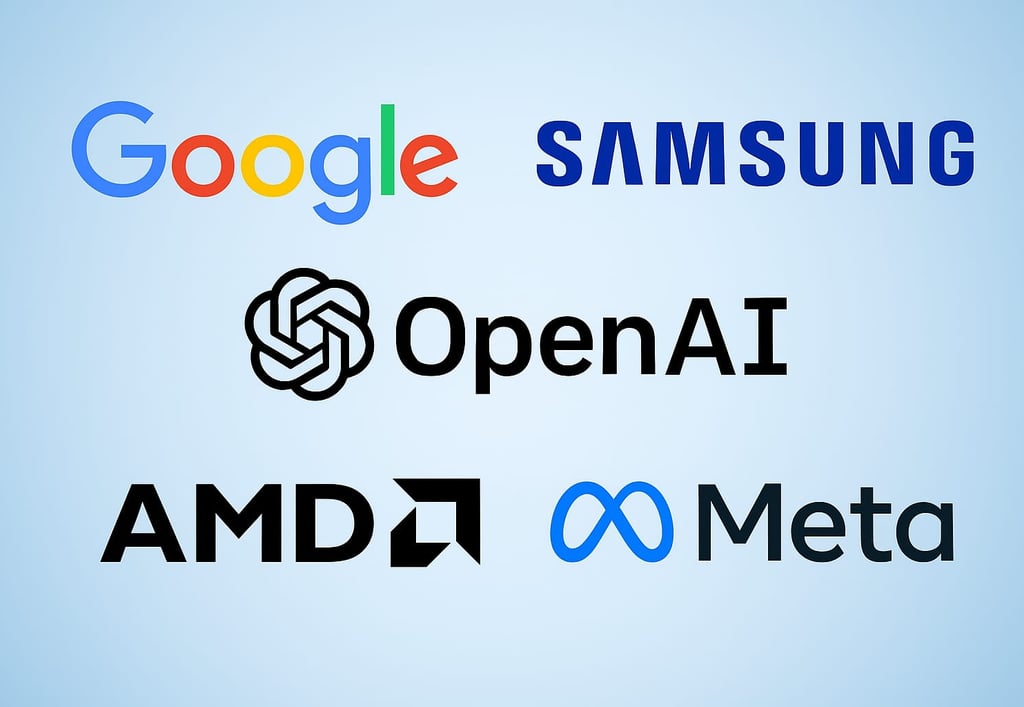OpenAI to Google, Tesla, and Samsung: $16.5 Billion and More Flow into AI Infrastructure
Discover how OpenAI, Google, Tesla, Samsung, and top tech firms are investing billions in AI infrastructure to meet surging global AI demand in 2025.
Raja Awais Ali
11/18/20252 min read


From OpenAI to Google, Tesla, and Samsung: Billions Channeled into AI Infrastructure
Global tech giants are investing billions of dollars in artificial intelligence (AI) infrastructure to meet the rapidly growing demand for AI technologies. As AI models become more powerful and complex, companies require advanced computing power, state-of-the-art data centers, and high-speed chips. Consequently, firms such as OpenAI, Google, Tesla, Samsung, and others are pouring massive investments into AI infrastructure to ensure they can meet the increasing global demand.
According to recent developments, Google plans to build three new data centers in Texas, USA over the next two years, with an estimated investment of $40 billion. This initiative highlights Google’s strategy to strengthen its infrastructure in preparation for the increasing global AI workload and future AI applications.
Meanwhile, OpenAI has accelerated its efforts, partnering with Broadcom to develop its first in-house AI processor capable of handling more complex models efficiently. Additionally, OpenAI has a long-term deal with AMD, giving it access to cutting-edge AI chips and the option to acquire approximately 10% of AMD shares.
Nvidia has also joined the race, agreeing to supply AI data center chips to OpenAI, with potential investments of up to $100 billion. This collaboration not only strengthens Nvidia and OpenAI’s partnership but significantly boosts the speed and efficiency of AI computing, making large-scale AI model training more effective.
At the same time, Meta signed an agreement with CoreWeave worth roughly $14 billion to acquire large-scale computing power necessary for modern AI projects and model training. Moreover, Intel received an investment of about $2 billion from SoftBank, enabling it to produce high-performance AI chips and support global AI infrastructure expansion.
Tesla and Samsung have also stepped into the AI infrastructure arena. The two companies recently signed a $16.5 billion joint investment deal. Tesla will expand its AI systems and robotics infrastructure for autonomous vehicles, while Samsung will enhance AI chip production through its factories in Korea and the USA. This deal ensures sufficient computing power to support global AI infrastructure and accelerate training for advanced AI models.
All these investments clearly indicate that AI is no longer just a software trend; it has become the foundation of future technology. The more complex and powerful AI models become, the greater the need for robust data centers, high-performance chips, and reliable energy systems. Tech companies are investing billions to strengthen their infrastructure and ensure they can meet the growing AI demand worldwide.
Conclusion: Companies like OpenAI, Google, Nvidia, AMD, Meta, Intel, Tesla, and Samsung are significantly increasing investments in AI infrastructure. This massive investment not only prepares these firms for the AI-driven future but also enables the widespread adoption and development of AI technology globally. As AI models continue to grow in complexity and capability, robust infrastructure will remain a critical factor in their success.
Stay informed with the latest national and international news.
© 2025. All rights reserved.